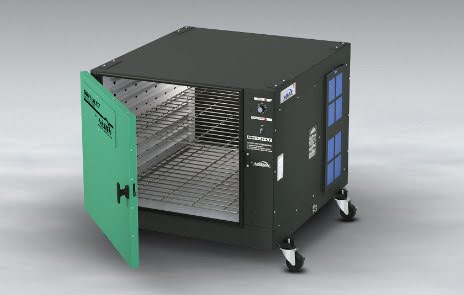Temperature regulation is fundamental in laboratory environments, where even slight deviations can significantly impact test outcomes. Ovens serve as indispensable tools across various sectors, from manufacturing to research, facilitating processes such as drying, curing, and aging. Among the critical parameters to consider is the minimum temperature, which holds particular relevance in ensuring the integrity and consistency of test specimens.
Understanding Oven Minimum Temperature:
The minimum temperature of an oven refers to the lowest achievable level at which it can operate effectively. This specification is vital for materials testing, where certain procedures demand precise thermal conditions to yield accurate results. Whether assessing the durability of asphalt, the strength of concrete, or the composition of aggregates, maintaining the prescribed minimum temperature is non-negotiable.
Importance in Quality Control:
Quality control lies at the heart of laboratory operations, guiding decisions and ensuring adherence to standards. The role of oven minimum temperature in this context cannot be overstated. It forms the basis for repeatability and reproducibility, allowing researchers and technicians to validate their findings with confidence. By establishing a stable thermal environment, laboratories uphold the integrity of their testing protocols and uphold the trust of stakeholders.
Expanding on Oven Minimum Temperature:
In materials testing, the significance of oven minimum temperature transcends mere compliance with standards; it directly influences the outcome of experiments and the reliability of data. Consider, for instance, the process of asphalt binder testing. The viscosity and performance of asphalt binders are highly sensitive to temperature variations. Therefore, maintaining the minimum temperature during binder testing is essential to simulate real-world conditions accurately. Failure to adhere to the specified minimum temperature can result in inaccurate viscosity measurements, potentially leading to flawed pavement designs and compromised road quality.
Applications Across Industries:
The relevance of oven minimum temperature extends across a spectrum of industries, each with its unique testing requirements. In construction, for instance, precise control over curing temperatures is essential for evaluating the strength and durability of concrete structures. Similarly, in the food industry, ovens with accurate minimum temperature settings are indispensable for ensuring product safety and compliance with regulatory standards.
FAQs:
- What is the significance of oven minimum temperature in materials testing?
- Oven minimum temperature ensures consistency in test conditions, minimizing variability and enhancing the reliability of results.
- How does oven minimum temperature affect the quality of test specimens?
- Deviations from the specified minimum temperature can compromise the properties of materials under evaluation, leading to erroneous conclusions.
- What factors should be considered when selecting an oven for materials testing?
- Apart from the minimum temperature, factors such as temperature stability, uniformity, and programmability are crucial for optimal performance.
- Can oven minimum temperature impact the accreditation of a laboratory?
- Yes, accrediting bodies often scrutinize the calibration and performance of laboratory equipment, including ovens, to ensure compliance with quality management standards.
Conclusion:
In conclusion, the role of oven minimum temperature in ensuring quality control in laboratory settings cannot be overlooked. By meticulously regulating thermal conditions, laboratories uphold the integrity of their testing processes and deliver results that stand up to scrutiny. As industries continue to demand accuracy and reliability in materials testing, investing in high-quality ovens with precise minimum temperature control becomes imperative. At certifiedmtp.com, we recognize the critical importance of temperature regulation in laboratory operations and offer a comprehensive range of equipment to support your testing needs.




